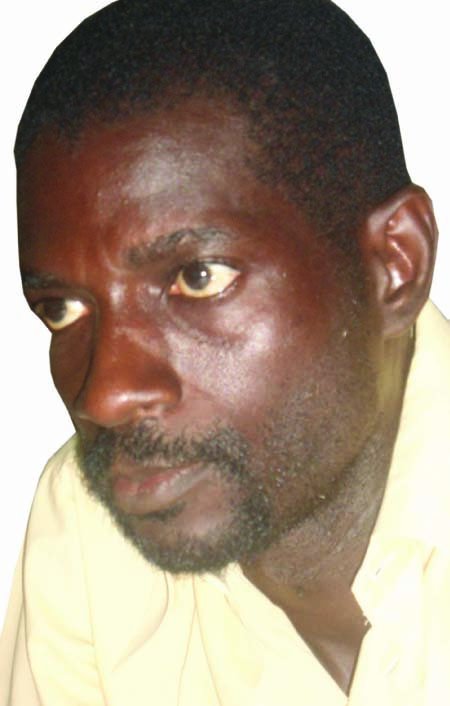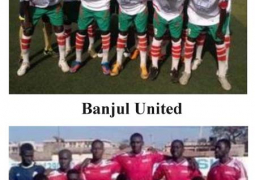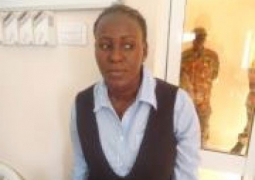
Today is World Press Freedom Day. This day was set aside by the United Nations General Assembly through decision 48/432 to celebrate the fundamental principles of press freedom; to evaluate press freedom, to defend the media from attacks on their independence and to pay tribute to journalists who have lost their lives in the line of duty.
In line with its tradition, The Gambia Press Union annually joins the rest of the world to celebrate the day based on the conviction that everyone has the right to freedom of opinion and expression, i.e. the freedom to hold opinions without interference and to seek, receive and impart information and ideas through any media and regardless of frontiers.
As we extend a hand of friendship and understanding to the Government, we must however bear in mind that even in the midst of celebration by journalists and friends of the media, there is a shrinking space of media freedom in The Gambia.
The banning of journalist Binta Bah of the Daily News from covering a court proceeding, deportation of BBC journalist Thomas Fessy, the summary closure of Teranga FM, Daily News and Standard Newspaper coupled with the arrests of Journalists Babucarr Ceesay, Abubacarr Saidykhan and Abdoulie John are clear indications that media freedom is deteriorating in this country.
In light of the foregoing, The Gambia Press Union calls on the Government of the Gambia to uphold its constitutional obligation in ensuring protection, development and professionalism of the press and other information media as enshrined in Section 207 (3) of the Supreme Law of the Land which states thus, ‘The press and other information media shall at all times, be free to uphold the principles, provisions and objectives of this Constitution, and the responsibility and accountability of the Government to the people of The Gambia’.
Given the high rate of arrests and detention of journalists in the country by the security agencies, the NIA in particular, GPU demands that this practice stops forthwith as it does not only tarnish the image of the country, but it retards the professionalism and overall development of the Gambian media. Consequently, such practices force the media to not only engage in self censorship, but to focus on areas they feel are safe to cover.
GPU would like to see a secure and safe working environment for journalists in this country. While GPU understands that the Government and its Agencies have roles and functions to play in the country’s democratization process, we however feel their actions should be in line with the letter and spirit of the constitution.
In this regard, GPU would appreciate it very much if any arm of the Government and indeed any individual, organization, company or institution in the public, private and civil society sectors has qualms about any actions or reporting of the media to courteously engage the GPU and media houses for redress.
We believe that the arrest and detention of journalists or taking them before a court of law should serve as a last resort, i.e. when all mediation efforts with the GPU and respective media houses fail. But even in situations where a journalist has to be arrested and/or detained or taken before a court of law, GPU demands equal treatment, fair trial and the respect for the rule of law.
We are human beings and professionals like doctors, lawyers, soldiers, civil servants and farmers among others. While we have the tendency to err, but even there, GPU demands that the security forces and all agencies of the State treat us like decent human beings that are part and parcel of the Gambian society and playing a role in national development. Thus we call on members of our honourable security forces to kindly and professionally engage the GPU if it has any issues with any journalist or media house rather than clamp down on the media organization/individual. We need to work together to enhancing security and socio-economic growth.
GPU humbly calls on the Executive to expand the democratic space in the country and to intensify its investigation in to the unresolved murder of Deyda Hydara and the disappearance of Chief Ebrima Manneh.
The Gambia Press Union further calls on the Gambia Government to review the country’s media laws and bring them in line with international standards as proposed by the Special Rapporteur for Freedom of Expression and Access to Information at the African Commission on Human and People’s Rights, Commissioner Pansy Tlaku.
The Gambia Press Union is hereby calling on the proprietors/heads of media organizations in the country to work to not only increasing the salaries and wages of their staff, but to investing in the professional development of such individuals as this would impact positively on the content of their papers and radio programmes.
Furthermore, we wish to ask all the private media organizations in the country to at all times adhere to the provisions of the Labour Act in dealing with their employees.
The Gambia Press Union is also calling on media practitioners to stick to the ethics of journalism and refrain from acts that will put the reputation of Gambian journalists in to disrepute. We further call on Gambian journalists to avoid using their papers and radio stations to chastise or malign innocent individuals and institutions.
US ambassador host journalists
Meanwhile, in a separate but related development, the ambassador of the United States to the Gambia, Edward Alford, yesterday hosted journalists to a reception at his residence in Fajara in honour of World Press Freedom Day.
In a brief statement at the occasion, Ambassador Alford emphasised that freedom of the press and freedom of expression is a fundamental right for all people, a right that is enshrined in the Universal Declaration of Human Rights.
According to him, journalists provide the very foundation for a well functioning society.
‘Without a free press, a society cannot breed and cannot develop. On a daily basis, you report the news, you publish papers, you portray our latest events and broadcast 24 hours a day on radio waves throughout the nation,’ he said.
While underscoring the importance the US Government attaches to press freedom and freedom of expression, Ambassador Alford said a free media can and should be the biggest ally of any government.
‘A free media will provide for a free, healthy and vibrant society. Today in honour of press freedom day, let us pay tribute to remember all the journalists around the world who are detained or have been harassed, tortured, imprisoned or even killed for doing their job,’ he stated.
The media, he said, is not the enemy of the government, rather it is the lifeblood that supports the society.
Sam Sarr, Managing Editor of Foroyaa newspaper, described the day as very significant in the calendar of the media.
According to him, freedom of expression is closely linked with freedom of the press because the press or the media is the channel through which information is disseminated..
He noted that this being the case, the importance of freedom of expression cannot be over emphasised.
‘We are what we are because we can be able to express ourselves in a host of ways,’ he said, adding that what distinguished journalists from other creatures is that fundamental right, which is freedom of expression, a tenet of democracy.
Pap Saine, Managing Director and co-publisher of The Point newspaper also underscored the importance of the day, noting that this a day to be celebrated by journalists around the globe.
According to Pap Saine, journalists in The Gambia continue to work professionally despite all the challenges they face, which he said range from the need for training to the lack of equipment.
This, he added, continues to affect the work of journalists in the country.
While thanking the US Government through its Banjul Embassy for their support to the Gambian media, Saine expressed hope for more fruitful collaboration and support from the US Embassy.



